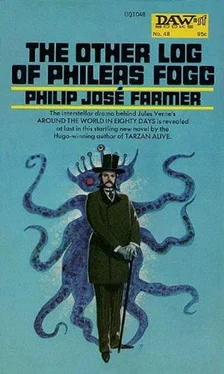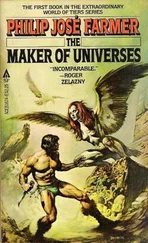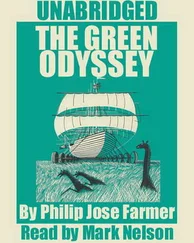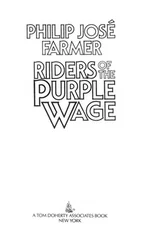Philip Farmer - The Other Log of Phileas Fogg
Здесь есть возможность читать онлайн «Philip Farmer - The Other Log of Phileas Fogg» весь текст электронной книги совершенно бесплатно (целиком полную версию без сокращений). В некоторых случаях можно слушать аудио, скачать через торрент в формате fb2 и присутствует краткое содержание. Жанр: Фантастика и фэнтези, на английском языке. Описание произведения, (предисловие) а так же отзывы посетителей доступны на портале библиотеки ЛибКат.
- Название:The Other Log of Phileas Fogg
- Автор:
- Жанр:
- Год:неизвестен
- ISBN:нет данных
- Рейтинг книги:3 / 5. Голосов: 1
-
Избранное:Добавить в избранное
- Отзывы:
-
Ваша оценка:
- 60
- 1
- 2
- 3
- 4
- 5
The Other Log of Phileas Fogg: краткое содержание, описание и аннотация
Предлагаем к чтению аннотацию, описание, краткое содержание или предисловие (зависит от того, что написал сам автор книги «The Other Log of Phileas Fogg»). Если вы не нашли необходимую информацию о книге — напишите в комментариях, мы постараемся отыскать её.
The Other Log of Phileas Fogg — читать онлайн бесплатно полную книгу (весь текст) целиком
Ниже представлен текст книги, разбитый по страницам. Система сохранения места последней прочитанной страницы, позволяет с удобством читать онлайн бесплатно книгу «The Other Log of Phileas Fogg», без необходимости каждый раз заново искать на чём Вы остановились. Поставьте закладку, и сможете в любой момент перейти на страницу, на которой закончили чтение.
Интервал:
Закладка:

Philip José Farmer
The Other Log of Phileas Fogg
© 1973
FOREWORD
I first read Verne’s Around the World in Eighty Days in 1929. Between then and 1938 I reread it perhaps four or five times. I saw Todd’s movie version and enjoyed it immensely, but about thirty-three years passed before I read the book again. I found it to be even more charming than I’d remembered and was amazed at how well it stood up. It’s a true classic-of its own genre-though not in a class with The Brothers Karamazov or Moby Dick , of course. But I saw certain elements in it that had escaped me in my youthful reading days.
After pondering on these elements for several months, I concluded that Around the World in Eighty Days had two stories. One was the exterior, the easily observable, reported by Verne as an interesting but unsinister adventure tale. The other was esoteric, behind-the-scenes, and full of dangerous implications for humanity. There was a science fiction story in Days which Verne, the father of science fiction, had not told. He had not done so because, one, he did not know of it, or, two, he dared not reveal it, or, three, he suspected something was amiss but could only hint at it.
Why were Fogg’s origins so shrouded in mystery? Why was his life conducted as if he were a wound-up robot? Did he have clairvoyance or a brain which could compute the degrees of probability of future events and so act accordingly? Why did all the clocks of London strike at ten minutes to nine when Fogg got off the train at the end of his trip?
Philip José Farmer
INTRODUCTION
How much did Jules Verne know of the real story behind Around the World in Eighty Days ?
He could not have had all the facts. If he had, he would have been afraid to write the story in any form. Yet, he drops so many hints and ambiguities about Phileas Fogg that he must have suspected something. No other account of the famous global dash, and there were many of these, contain any such allusions or obliquities.
Did Verne get a glimpse into Fogg’s secret notebook, the other log of his eighty-day voyage? It doesn’t seem likely. He may have heard of it somehow and gotten from someone a few passages from it. But if he had, he would have been no more informed, though much more puzzled, than before. The secret log was written in the syllabary symbols of Eridanean A. Only one of the ancient blood, or an enemy Capellean, or a human foster-child, could read this. None of these would have imparted to a mere human the information in the strange writing.
There are always traitors, of course. Sentiency implies both loyalty and treachery.
Consider a few of Verne’s hints about Phileas Fogg. He might live a thousand years without growing old. His admission to the exclusive Reform Club was mysterious. The bankers Baring had recommended him, but why did they do so? No one knew where Fogg or his money came from. Yet the reluctance of the upper-class mid-Victorian Englishman to accept anyone without a “good” family background or money is well known. He seemed to be a creature of absolutely undeviating habits. Not only could the neighbors set their clocks by his routine, they must have wondered if he were truly human and not a clockwork robot. Certainly, he seemed either inhuman or unhuman.
Yet he had a heart. He himself admitted that he had one, when he could afford it. He could sit unmoving for hour after hour as if he were a big frog watching unblinkingly for the juicy flies of time.
And had he traveled, this man who confined his activities to a very small area of the world? He seems to have known most of the world, even the far-off places.
“The unforeseen does not exist,” he was heard to say more than once. Does this mean he had clairvoyance? Or does it indicate something more credible but far more sinister? Why did this Englishman, fixed on a track like a locomotive of the Great Western, suddenly jump the track and take off across the horizon?
Why? There are many whys which Verne does not answer.
The existence of Mr. Fogg’s other log was not known until 1947 when the house at No. 7, Savile Row, Burlington Gardens, London, was undergoing some repairs. This house, as everybody knows, was once occupied by the famous and witty but penniless playwright and Member of Parliament, Richard Brinsley Sheridan. He died in distressing circumstances in 1816, not in 1814, as Verne says. During the tearing down of a wardrobe wall, a small diary was found in a hollow space between two walls. This seems to have been in good condition until a hole in the roof permitted water to flow over it. Some of the pages were entirely ruined and parts of others were illegible. Enough of the unknown writing was left to become a cause célébre among cryptographers and linguists the world over.
In 1962, the writing was recognized as neither a code or cipher but a hitherto unknown language. This would still be untranslatable if it had not been for the discovery of some notebooks in a house in rural Derbyshire. This was in the manor once owned by a Sir Heraclitus Fogg, baronet. These consisted of notes written to help an English-speaking child learn the language. With these referents, a noted linguist of the University of Oxford, Sir Beowulf William Clayton, fourth baronet, tackled the material found in No. 7, Savile Row. He managed to translate at least a third of what was left.
I was the first to hear about the translation because it was my researches into the life of General Sir William Clayton, first baronet, father of Phileas Fogg, which enabled Fogg’s childhood home to be located and, hence, the illuminating notebooks.
The long-abandoned Fogg Hall was searched by my English colleague, the aforementioned linguist, a great-grandson of Sir William Clayton by his tenth wife, Margaret Shaw. Sir Beowulf’s investigation resulted in the finding of the child’s parallel texts and the consequent partial translations. From the notes furnished me by Sir Beowulf I have reconstructed the story behind Verne’s story: The Other Log of Phileas Fogg .
1
Phileas Fogg was said by Verne to be a bearded Byron, one who was so tranquil that he might live a thousand years without getting old. Was this statement about his possible longevity just a coincidence, a flying thought which chance happened to fit with the wings of truth?
A millennium of life was exactly what Fogg had been promised. In 1872 he was said to be about forty years of age, and so he was. But the Eridanean elixir does not effect its work until the body is about forty years old, and then it rapidly takes hold. Today, Fogg would look as if he had aged perhaps a year or two, if he is still alive. The chances are that he is alive and well somewhere in England. Can anyone point to a gravestone on which is carved his name, the date of his birth, 1832, followed by the date of his death? They cannot.
Mr. Fogg was tall and well shaped and had a handsome face, which is to be expected from one who so closely resembles Byron. His hair and whiskers were light, which may mean in Vernese that he was blond or had light brown hair. The color of his eyes is not mentioned by Verne. A Scotland Yard report, however, still available to the researcher who is diligent enough to dig for it, gives them as dark gray. This is to be expected in a member of a family noted for its gray eyes.
His face was pale, a natural consequence of exposure to the sun for only once a day during the time it takes to step off one-thousand-and-one-hundred-and-fifty-one consecutive paces. His teeth, unlike the typical Englishman’s of that day, were magnificent. He had lost none to the dental decay which afflicted the people of Albion in the mid-nineteenth century. This quality, like the gray eyes, seems to have been a genetic factor. On the other hand, since he was given a number of elixirs during his childhood, the dental health may have resulted from a drug which originated light-years and millennia away.
Читать дальшеИнтервал:
Закладка:
Похожие книги на «The Other Log of Phileas Fogg»
Представляем Вашему вниманию похожие книги на «The Other Log of Phileas Fogg» списком для выбора. Мы отобрали схожую по названию и смыслу литературу в надежде предоставить читателям больше вариантов отыскать новые, интересные, ещё непрочитанные произведения.
Обсуждение, отзывы о книге «The Other Log of Phileas Fogg» и просто собственные мнения читателей. Оставьте ваши комментарии, напишите, что Вы думаете о произведении, его смысле или главных героях. Укажите что конкретно понравилось, а что нет, и почему Вы так считаете.












